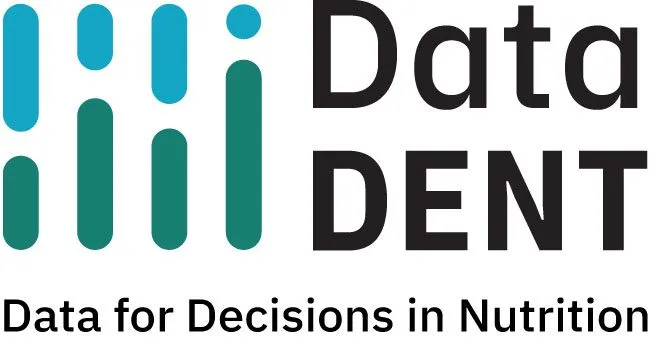
In early 2019, the WHO released global guidance that recommends breastfeeding counseling for all women starting during pregnancy up until the child is two years or older. However, data on the coverage of breastfeeding counseling is limited. There is need for more actionable data on breastfeeding counseling coverage during critical time points.
Why is breastfeeding counseling needed?
The need to protect, promote, and support breastfeeding has been at the forefront of nutrition and maternal and child health for decades. Published in 2003, the WHO Global strategy for infant and young child feeding emphasizes exclusive breastfeeding for the first six months of life (unless advised otherwise for medical reasons) and continued breastfeeding for two years or beyond. Breastfeeding counseling is an effective intervention to ensure proper technique, help women adjust to physical changes, and improve confidence.
Research shows that breastfeeding counseling is effective in promoting exclusive breastfeeding as well as continued breastfeeding after 6 months.[1][2] According to the WHO training course on breastfeeding counseling, the act of counseling a mother involves listening, understanding how she feels about breastfeeding, and helping her develop confidence and “decide what is best for her.”[3] Breastfeeding counseling may include observing the mother feed her child, documenting breastfeeding history, listening and offering support, and assessing and assisting the mother to change breastfeeding practice.
Breastfeeding counseling at critical time points
In early 2019, the WHO released Guideline: counselling of women to improve breastfeeding practices, a global guidance that recommends breastfeeding counseling for all women starting during pregnancy up until the child is two years or older.[4]

Counseling during antenatal care (ANC) is important to ensure early initiation of breastfeeding and proper technique. Various studies have looked at the positive relationship between ANC attendance and early and continued breastfeeding.[5][6][7] Women who received prenatal counseling are more likely to breastfeed their newborns at 4-6 weeks.[8]
After delivery, continued promotion and support for breastfeeding is also important. Individual and group breastfeeding counseling increases chances of exclusive breastfeeding and reduces no breastfeeding rates.[9]
Breastfeeding counseling during the early postnatal period—within two days of birth—has been shown to increase rates of breastfeeding six months after delivery. Postnatal lactation training has also been shown to reduce mixed feeding practices (breastmilk and other liquids or foods) in infants.[10] Many women cite early problems with breastfeeding as the primary reason for not exclusively breastfeeding.[11] A combination of health worker support in facilities and communities and family and peer-based counseling are important interventions to improve exclusive breastfeeding.2 Counselling that helps correct positioning and attachment can prevent future issues with breastfeeding. Continued support can also build maternal confidence and attachment to a newborn.
How do we know whether women are receiving breastfeeding counseling?
Globally, data on the coverage of breastfeeding counseling is limited. The World Health Assembly Global Nutrition Monitoring Framework includes an indicator of the coverage of breastfeeding counseling that is to be reported by all Member States. However due to lack of available data the WHO-UNICEF Technical Expert Advisory Group on Nutrition Monitoring (TEAM) recommended an interim indicator on whether there are established policies and interventions around breastfeeding counseling at national level.
Most survey-based data collection systems do not provide data on the reach and coverage of breastfeeding counseling programs. Coverage of breastfeeding practices (e.g. EBF) is often used as a proxy for coverage of breastfeeding counseling, but studies show that in many contexts this may not be accurate. Beginning five years ago, Demographic and Health Surveys (DHS) began to ask mothers whether they received breastfeeding counseling during the first two days after delivery. WHO-UNICEF TEAM recommends that data collection systems address issues around type and frequency of contact with households, type of provider, and the nature of the intervention for coverage of breastfeeding counseling.[12] DataDENT has helped coordinate a set of related recommendations for the DHS on counseling about breastfeeding at early critical time points.
There is need for more actionable data on breastfeeding counseling coverage during critical periods: during ANC, around delivery, and at one month. Governments, funders, program implementers, and health providers need information on whether and how mothers are being reached with breastfeeding counseling.
[1] Kavle JA, LaCroix E, Dau H, Engmann C. Addressing barriers to exclusive breast-feeding in low- and middle-income countries: a systematic review and programmatic implications. Public Health Nutrition. 2017;20(17):3120–3134. doi:10.1017/S1368980017002531
[2] Bhutta ZA, Ahmed T, Black RE, Cousens S, Dewey K, Giugliani E. et al., for the Maternal and Child Undernutrition Group. What works? Interventions for maternal and child undernutrition and survival. Lancet. 2008;371:417-440. https://doi.org/10.1016/S0140-6736(07)61690-0
[3] WHO-UNICEF. Breastfeeding counselling: a training course. 1993.
[4] WHO. Guideline: counselling of women to improve breastfeeding practices. 2018. Retrieved from https://www.who.int/publications/i/item/9789241550468
[5] Matovu A, Kirunda B, Rugamba-Kabagambe G et al. Factors influencing adherence to exclusive breast feeding among HIV positive mothers in Kabarole District, Uganda. East Afr Med J. 2008;85:162–170.
[6] Tiwari R, Mahajan PC, Lahariya C. The determinants of exclusive breast feeding in urban slums: a community based study. J Trop Pediatr. 2009;55:49–5.
[7] Ugboaja JO, Berthrand NO, Igwegbe AO et al. Barriers to postnatal care and exclusive breastfeeding among urban women in southeastern Nigeria. Niger Med J. 2013;54:45–50
[8] Imdad A, Yakoob MY, Bhutta ZA. Effect of breastfeeding promotion interventions on breastfeeding rates, with special focus on developing countries. BMC public health. 2011 Dec;11(3):S24.
[9] Haroon S, Das JK, Salam RA, Imdad A, Bhutta ZA. Breastfeeding promotion interventions and breastfeeding practices: a systematic review. BMC public health. 2013 Sep;13(3):S20.
[10] Pereira NM, Verma RJ, Kabra NS. Postnatal Lactational Counseling and Neonatal Weight Pattern. Indian Pediatr. 2015;52(7):579-82.
[11] Su LL, Chong YS, Chan YH, Chan YS, Fok D, Tun KT et al. Antenatal education and postnatal support strategies for improving rates of exclusive breast feeding: randomised controlled trial BMJ. 2007;335:596. doi: https://doi.org/10.1136/bmj.39279.656343.55
[12] WHO-UNICEF. (December 2017). The Fifth Meeting of the WHO-UNICEF Technical Expert Advisory group on nutrition Monitoring (TEAM) Meeting Report 28-29 November 2017. New York. Retrieved from https://www.who.int/nutrition/team/2017-team-5thmeeting-report.pdf?ua=1
